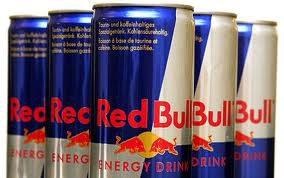Guess what the real gateway drug is? No, it’s not marijuana!

Energy drinks, particularly those little power shots that make you feel like an eight-ball shot out of a cannon made of methamphetamine, are big business.
The company that sells the “five-hour” shots cleared a billion in sales last year alone.
Like any legally available and powerful drug, young folks are knocking back the high-powered caffeine bombs like there’s no tomorrow.
But unlike what kids are told in the ads, there’s emerging evidence that there’s a connection between the consumption of high-caffeine energy drinks and mental health issues.
There’s another interesting development as well. Research indicates that because the energy drinks provide a massive shift in consciousness, they may lead kids that drink lots of them to seek out alternative highs provided by drugs other than caffeine.
In other words the real “gateway drug,” probably isn’t what most people think it is.
A recent study in Canada of more than 8,200 high school students by researchers at the University of Waterloo and Dalhousie University in Halifax found that about two-thirds of respondents reported consuming an energy drink in the previous year.
Roughly one in five students said they drank the beverages once or more each month.
“We also found something very interesting,” principal investigator Sunday Azagba told the Canadian Press. Azagba is a researcher at the Propel Centre for Population Health Impact at the University of Waterloo in southwestern Ontario.
“The more intense users tend to be more likely to be depressed, they’re more likely to have substance use,” he said, referring to alcohol and marijuana.
From a public health perspective the explosive growth in the sales and marketing of these drinks is alarming. In the U.S. alone, sales are expected to reach $20 billion in 2013.
From a law enforcement perspective there is another aspect that deserves some attention.
The fact of the matter is that combining massive amounts of caffeine and other chemicals present in the so-called “energy drinks” with alcohol is dangerous on at least a few levels.
Impaired individuals who might have realized they shouldn’t be driving can easily confuse the effects of the caffeine with the idea that they’re “not that drunk.” This in theory has the potential to put more severely impaired operators on the roads.
That’s obviously an officer safety issue. Another is the fact that the young and wasted aren’t necessarily known for the quality of decisions they make during something like an exchange with a police officer trying to maintain order at the scene of an assault.
It’s bad enough when a 22-year-old hothead with a girlfriend to impress is drunk and out of control. Add a few Red Bulls to the mix and it’s just fuel for the fire.”
“When you drink alcohol alone, it makes you slower, it makes you sleepy and it makes you stupid because it has an effect on cognitive judgment,” one observer said. “What the caffeine does is take away the sleep part.”














